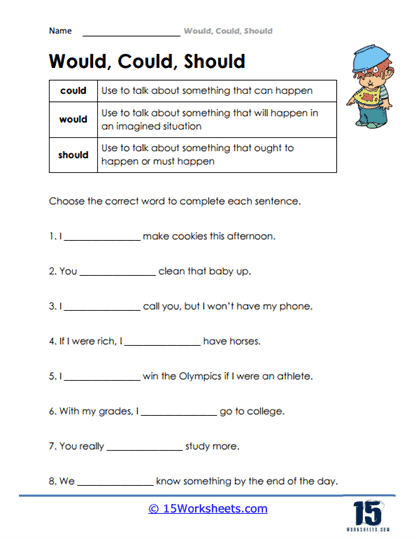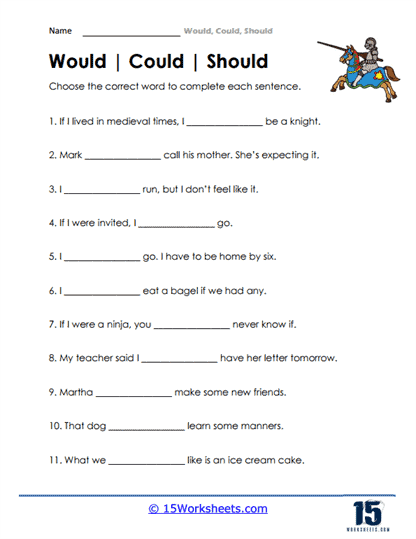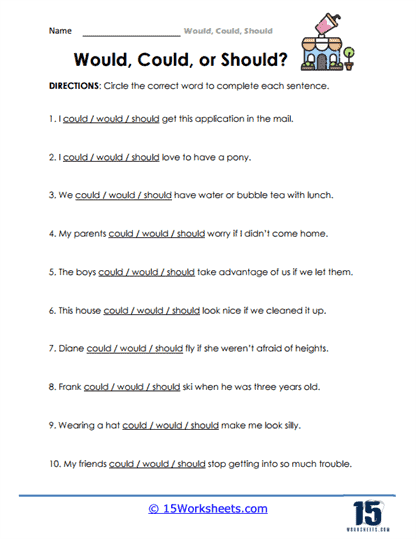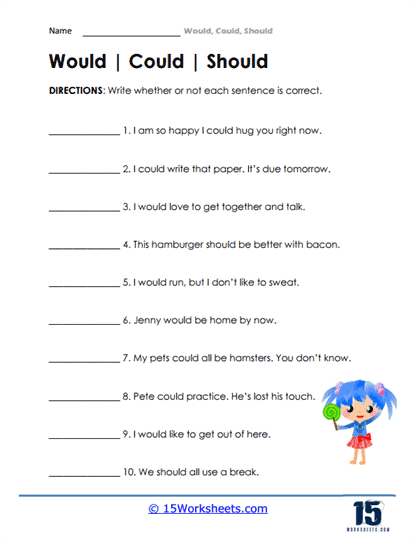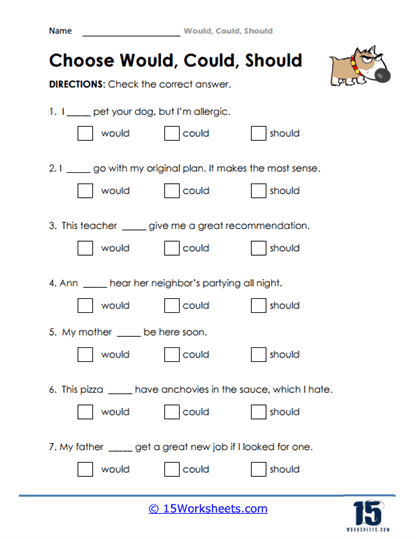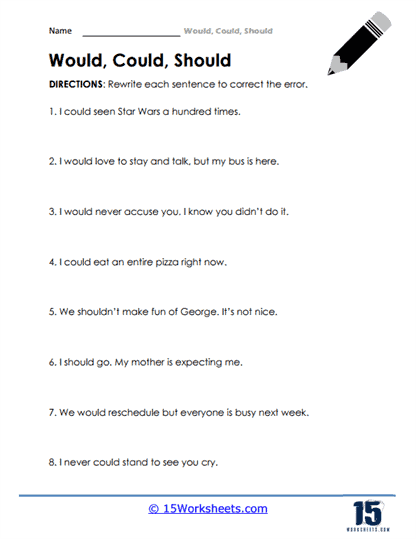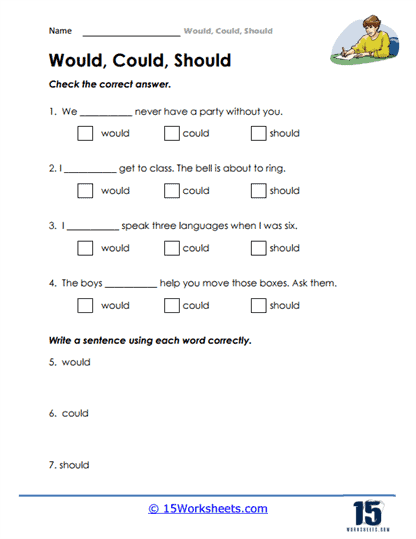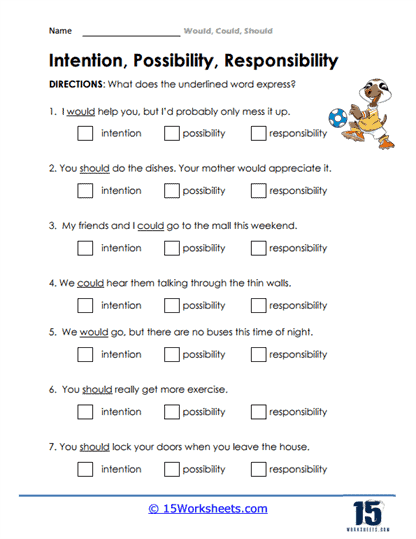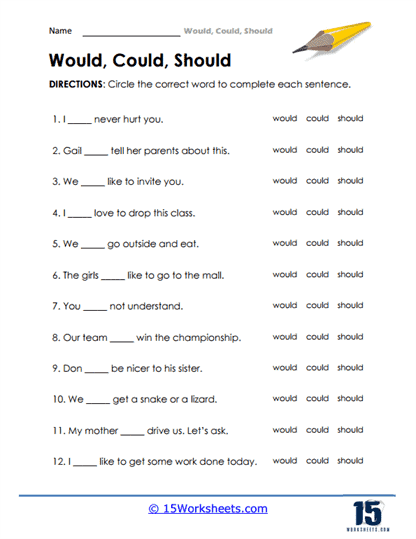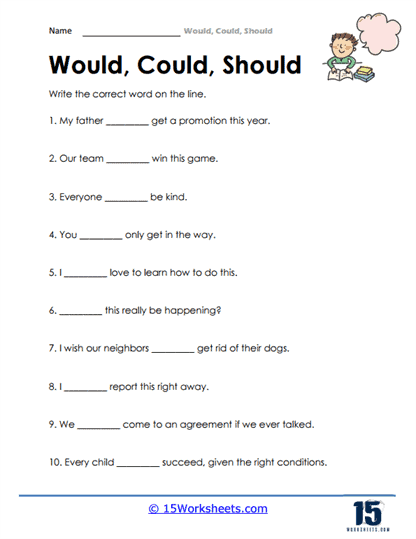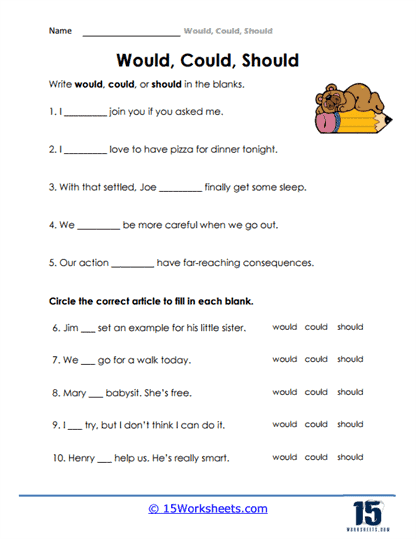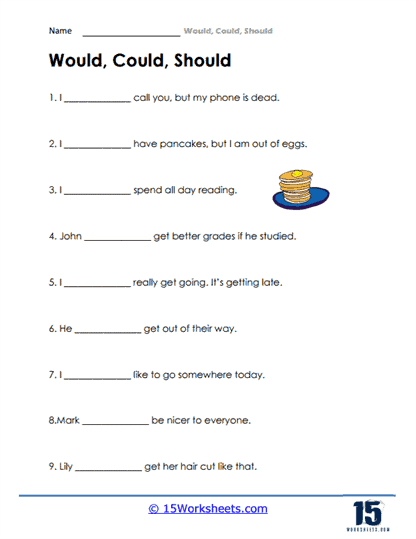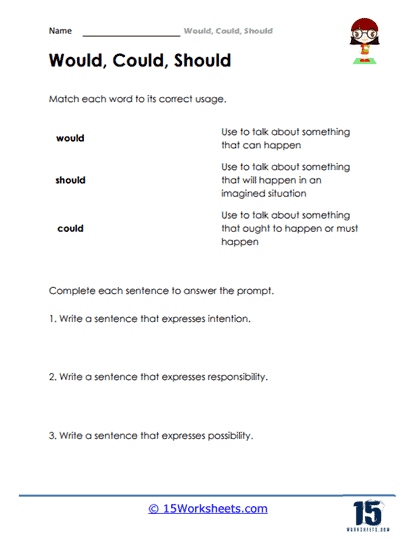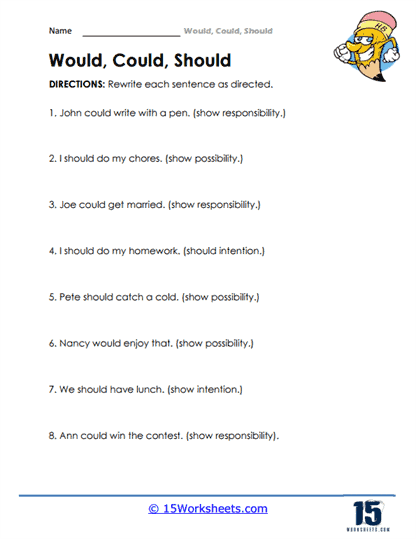Would, Could, Should Worksheets
All About These 15 Worksheets
Using these Would, Could, Should worksheets are a great way for students to practice and reinforce their understanding of the correct usage of modal verbs such as “would,” “could,” and “should.” Modal verbs are used to express a range of meanings including possibility, ability, permission, and obligation.
The first worksheet in this collection includes a brief explanation of the different meanings and uses of each modal verb. It’s great to be given by teachers to their students to introduce the topic before moving on to the rest of the worksheets that may require further mastery. Through these worksheets, students will:
- Complete sentences by adding “would,” “could,” or “should” correctly;
- Spot errors in sentences that incorrectly uses modal verbs and rewrite them to reflect proper usage;
- Write their own sentences using “would,” “could,” and “should” correctly;
- And understand the form and function of modal verbs and how they can be used to convey meaning in various contexts.
By providing students with a range of exercises, these worksheets can help students improve their understanding of the correct usage of these modal verbs, and enhance their writing and communication skills.
What are Modal Verbs?
Modal verbs are a type of auxiliary verb in English that are used to express a range of meanings, including possibility, ability, permission, obligation, and prediction. They are called “modal” because they modify the meaning of the main verb in a sentence by adding a sense of modality or mood.
When to Use Should?
There are five scenarios where one can use the word “should,” such as:
To express an event that might happen. For example:
- “Timothy should reach by 3:00 PM.”
- “We should reach our destination in an hour.”
When asking questions:
- “Shouldn’t you leave by 2:00 PM to reach on time?”
- “Should you brush your teeth two times a day?”
To give an opinion or offer a suggestion:
- “You should try to opt for a healthier lifestyle.”
- “We shouldn’t throw garbage on the roads, rather dispose of it properly.”
When expressing what is likely to happen:
- “If they leave earlier, they shouldn’t have a problem reaching on time.”
- “If you plan ahead of time, you shouldn’t have an issue meeting the deadline.”
To show a possible future event:
- “Should I find your notebook, I will be sure to give it back.”
- “Should I lose your coat, I will buy you a new one.”
When to Use Would?
Similarly, there are six instances where one can use the word “would.”
When making a polite request:
- “Would you like to have a beverage?”
- “Would you prefer regular fries or curly fries with that?”
When addressing a hypothetical situation:
- “If I were the president, I would like to end poverty.”
- “If I were rich, I would like to own a yacht.”
When asking a question:
- “Would you like to play a game of cards?”
- “Would you want to go for a stroll?”
When asking ‘what’, ‘when’, ‘where’, ‘who’, ‘how’ or ‘why’:
- “When would you be free to meet?”
- “What would you like to have for dinner?”
When expressing habitual or repetitive past actions:
- “Mary would cry whenever her dad left for work.” (habitual)
- “For a second, the home team would be winning, then losing again.” (repetitive)
When to Use Could?
One can use the word “could” in three scenarios.
When suggesting a possibility of sorts:
- “Could there be two different answers to this question?”
- “Whose book is this? It could be John’s book.”
When making a request politely:
- “Could you please pass me the salt and pepper?”
- “Could you kindly help me with this assignment?”
As a past tense of ‘can’:
- “In the old days, everyone could build their own houses.”
- “In the ’70s, everyone could wear bell-bottoms.”
Did these examples help you understand the usage of these modal verbs? Learning English might involve a learning curve, but it can be fun with the right help!

